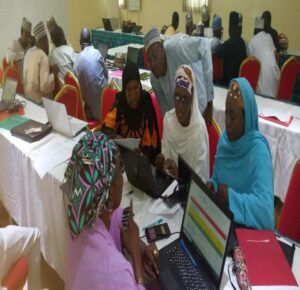How the USAID Integrated Health Program is Strengthening Health Systems in Nigeria
By: Aisha Ahmed, Gender, Social Inclusion and Community Engagement Advisor, Sokoto State, Nigeria

Sexual, reproductive, and maternal health issues are affecting women in Sokoto state, Nigeria. Unsafe sex and fistula are major risk factors, particularly among women and girls.
This is why the USAID Integrated Health Program (IHP) is working tirelessly with the State Ministry of Health, State Primary Health Care, and Ministry of Women and Children Affairs to strengthen health systems and ensure that sexual and reproductive health services are utilized by women in need of contraception or other relevant services.
The program is working hard to ensure that Sokoto state has a robust financing system and a sufficient number of well-trained, motivated health workers. In previous years, the State picked a handful of directors and a consultant to draw up the annual operational plan, but that didn’t really reflect the reality on the ground nor develop the activities necessary to address the needs of the State and the communities they served.
In 2020, IHP brought together program officers from different ministries, departments, and agencies to ensure that activities included in the annual operational plan (AOP) were realistic and also gender responsive to the needs of the State. It was also the first time that female officers were part of the AOP development; these officers included activities that they felt would improve the health services, and ultimately the health indices, in the state.